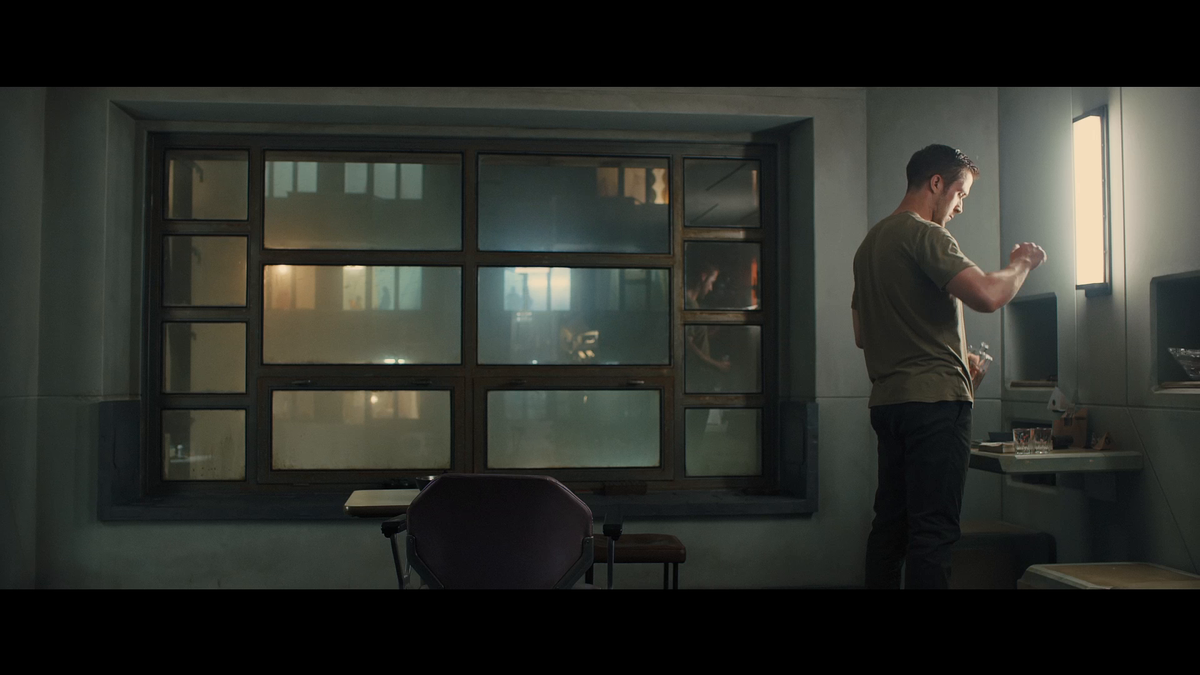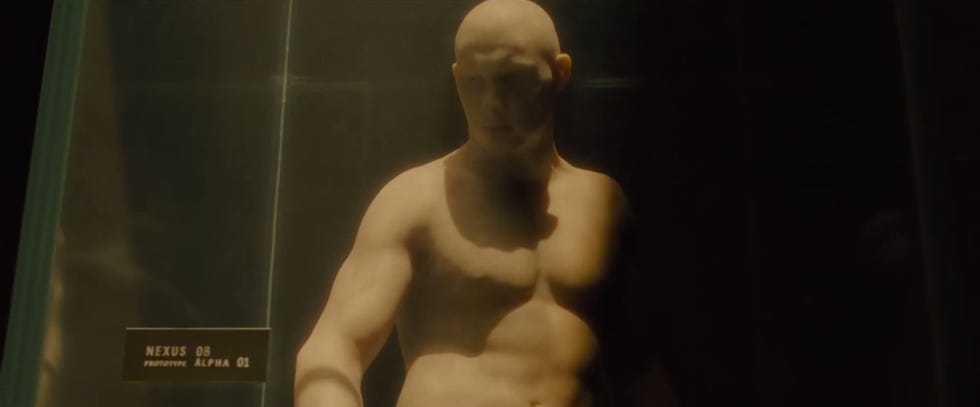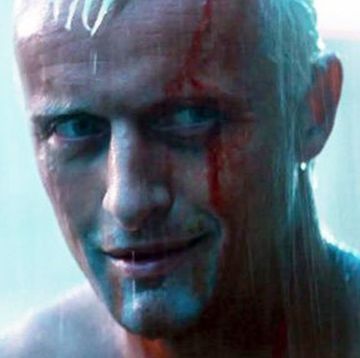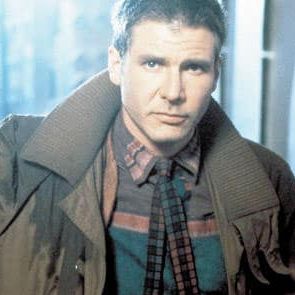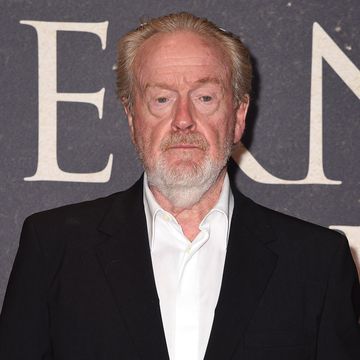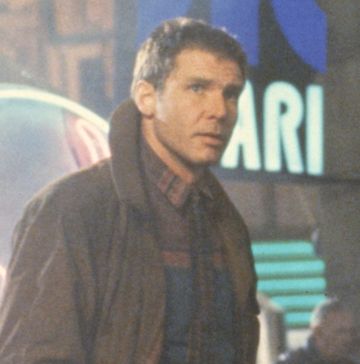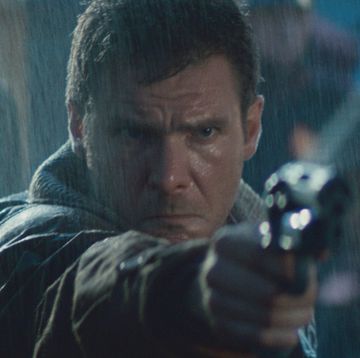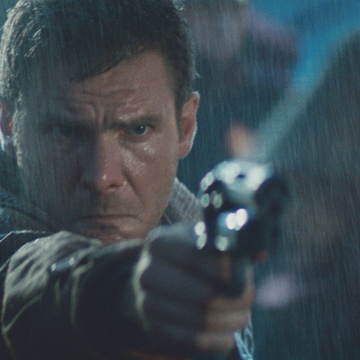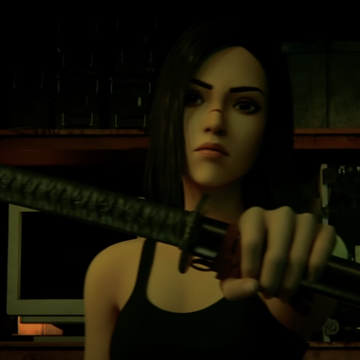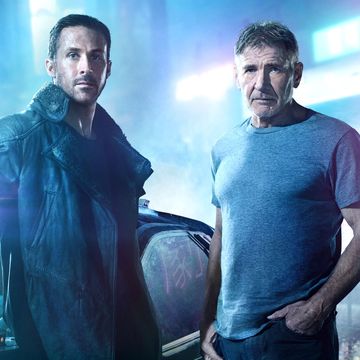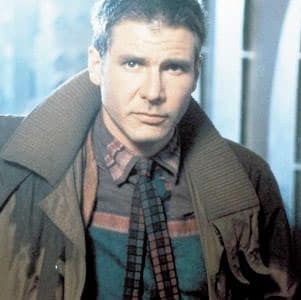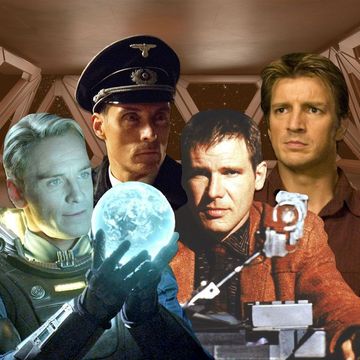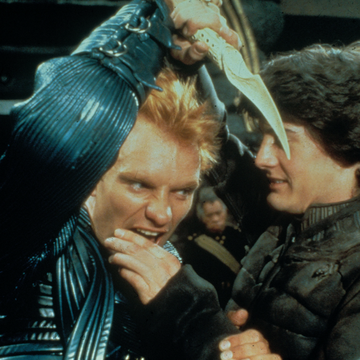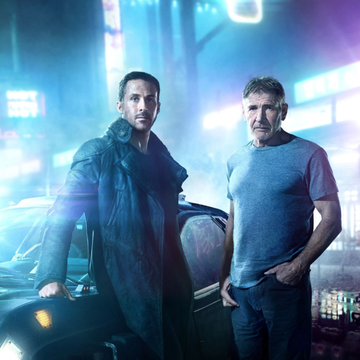A big part of the original Blade Runner was the question of whether 'Blade Runner' Rick Deckard (Harrison Ford) was, in fact, a replicant or not. The fact that there are multiple versions of the movie muddies the water: in some it's not clear. In one of them it pretty much is. So the mythology remained open to interpretation.
But now Denis Villeneuve's Blade Runner 2049 has hit cinemas, bringing back Deckard and raising the question all over again.
So: is he or isn't he?
The background
In Philip K Dick's story Do Androids Dream of Electric Sheep, Rick is not a replicant – he passes the Voigt-Kampff test and has a wife. The film version made some changes.
The original Blade Runner theatrical release hinted at the possibility that Rick is a replicant but left it very much ambiguous. We know that Rachael is definitely a replicant, and the "happy ending" – later removed by Ridley Scott for his Director's Cut – adds that she is "special" and not constrained by the four-year life span of every other Nexus 6.
"Four years, he figured – he was wrong. Tyrell had told me Rachael was special: no termination date. I didn't know how long we'd have together. Who does?"
Which perhaps leans toward Deckard being human (though is inconclusive).
Ridley Scott has said several times that he believes Deckard definitely IS a replicant, while Harrison Ford, in the original movie at least, felt that Deckard was human.
In the Director's Cut, Ridley Scott also added a sequence which implies Deckard is a replicant. Deckard's partner Gaff (Edward James Olmos) leaves Deckard an origami unicorn. Earlier, Deckard has dreamed of a unicorn and this papery gift implies that his dreams are implants which Gaff can access. Scott's 2007 Final Cut embellished this theme.
So, to Blade Runner 2049, which is co-written by Blade Runner writer Hampton Fancher and exec-produced by Scott.
As those who have seen it will know (and if you haven't, go! Get out of this article right away!) Blade Runner 2049 is very much a sequel. However, this does not necessarily mean the conclusions we can draw from this instalment retroactively affect the original.
Does Blade Runner 2049 confirm whether or not Deckard is a replicant? Well no, not exactly. But here's the evidence.
The ageing factor
Deckard has aged. This does not however, mean he is human. 2049 establishes that the Nexus 6 models with a four-year life span are now all retired, and that models with natural lifespans that are more akin to humans now exist.
Evidence that new model replicants can age comes from Hiam Abbass's Freysa, the leader of the replicant resistance. A 30-year-old photo of her with Rachael's baby shows that Freysa has visibly aged. Replicant Sapper Morton (Dave Bautista) also wear glasses, indicating a deterioration likely to have come with age (there'd be no reason to add a sight defect to a replicant).
Deckard is also able to be beaten up by Luv, but Luv is a newer model and younger – if replicants age and deteriorate, this isn't a indication that he's definitely human.
Of course, this does not mean Deckard is a replicant. It just means he could be.
What about the baby?
Blade Runner 2049's big revelation is that Rachael and Deckard have given birth to a child. Rachael is definitely a replicant.
Therefore either the narrative is about a new kind of female replicant who can conceive via a human male, therefore producing a human/replicant hybrid – or it's about the evolution of replicants, so that two replicants can reproduce together.
Within the logic of the movie, Niander Wallace (Jared Leto) is desperate to find out about Rachael and Deckard's child. He wants to create replicants who can reproduce so he can make more replicants, faster. If they were females breeding with humans, he wouldn't own them and they wouldn't necessarily "obey" him.
Sure, Wallace could be lying (although that would be a rather unsatisfying plot twist). Or it's possible Wallace could not know that Deckard is a human and has assumed he's a replicant. After all, the Blackout means that Tyrell's files aren't available.
Ana (Carla Juri) is Rachael and Deckard's kid. We know she was born, and has grown and has her own natural memories. We are also told she has a genetic defect. None of which conclusively comes down on the side or replicant or hybrid. *sigh*.
The plan
When talking to Deckard about his meeting with Rachael and their subsequent relationship, Wallace asks him: "Do you think you met by accident?"
If Rachael could be impregnated by a human, why would it need to be Deckard? Couldn't it be any human? Why make it a Blade Runner who might go rogue? Why wouldn't Tyrell want to do it himself?
Instead it makes more sense that they are the only two replicants who can procreate (or certainly one of a small number). That Deckard – like Rachael – is "special" and has a natural lifespan.
The revolutionaries' schemes
Head of the revolutionaries Freysa is willing to kill Deckard to apparently stop Wallace getting the secret of replicant reproduction. If he's a human, why bother? He knows there's a child (but so does Wallace), but not where it is or who it is. If he's human, he's not special and can't reveal very much to Wallace at all.
If he's a replicant, however, Wallace could take him apart and find out what it is that made him The One – a reason the revolutionaries would be willing to sacrifice his life.
On the other hand, it's conceivable that Freysa wouldn't care about his life so much if he was a human, and might as well kill him one way or the other just in case.
The new director's cut
The question of Deckard's replicant-ness is such a massive part of the original that there's no way Denis Villeneuve would have frivolously given a definitive answer one way or another.
However to us this feels like a movie about the philosophical dilemmas that would come from two replicants being able to evolve and have a child and NOT a film about a world where men can impregnate their sexbots. That would be a very different movie.
When asked which of the many versions of the original Villeneuve prefers, he chose the original theatrical one (where Rachael and Deckard go off into the sunset) but also the 2007 version where Ridley Scott made it clear that Deckard definitely is not human.
We'll say it even if Villeneuve won't. HE'S TOTALLY A REPLICANT.
Blade Runner 2049 is in cinemas now. Pre-order the DVD here.
Want up-to-the-minute entertainment news and features? Just hit 'Like' on our Digital Spy Facebook page and 'Follow' on our @digitalspy Twitter account and you're all set.


